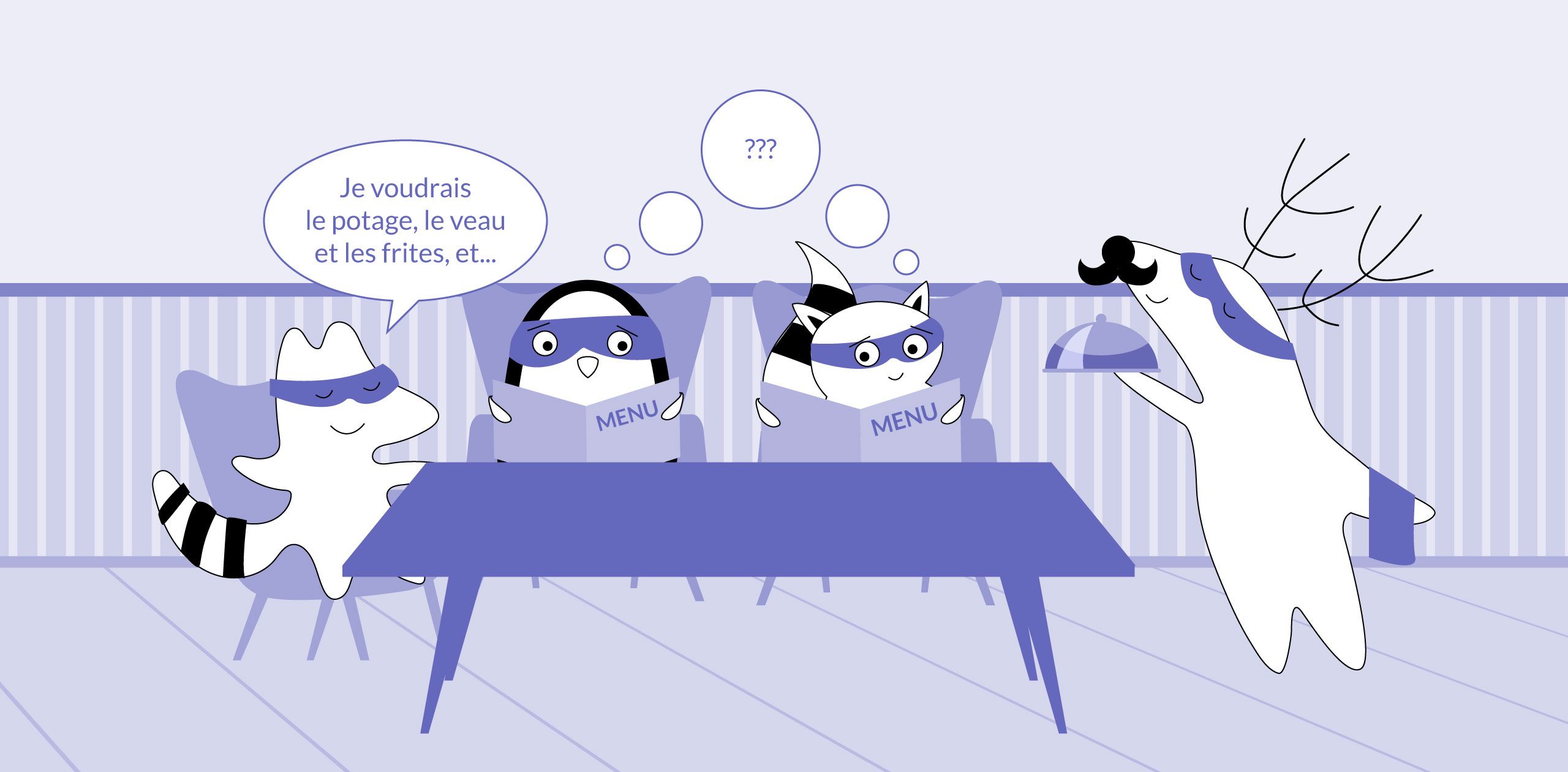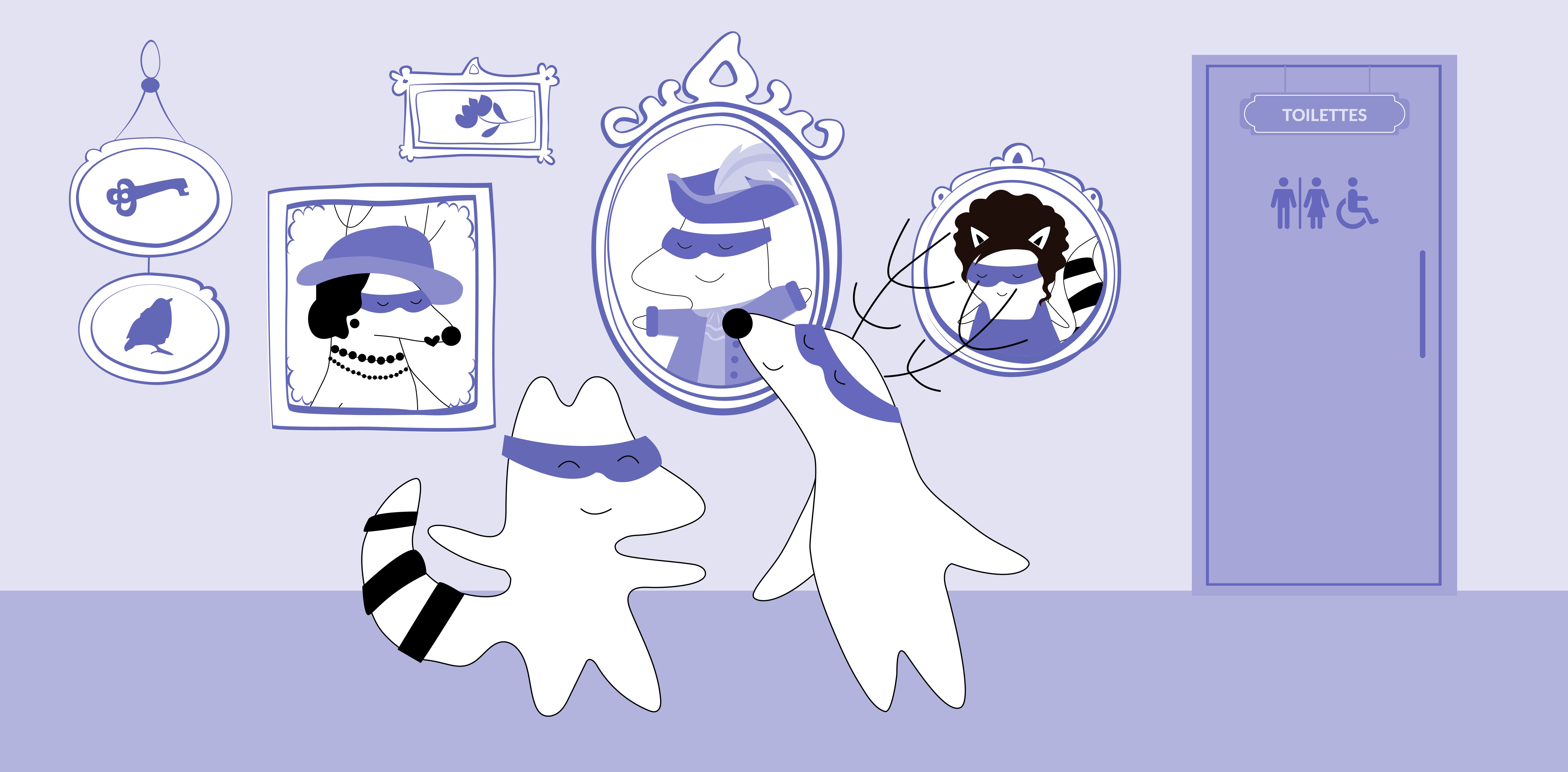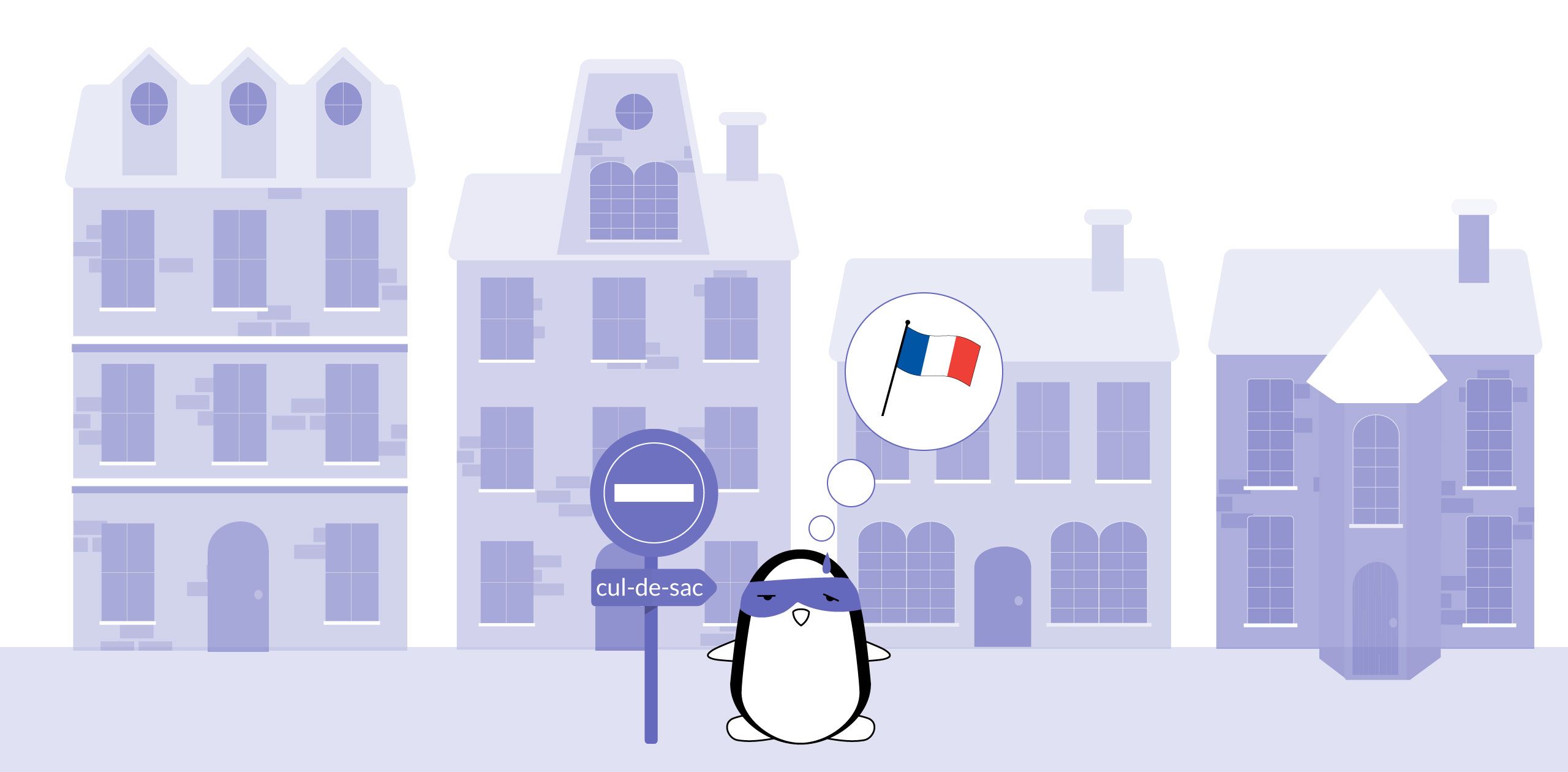
There is no doubt that the French language has had a profound impact on English over the years. In fact, there are currently numerous French words that are used in English today. But why do so many French words find their way into our language? And where did they come from in the first place?
One of the main reasons why so many French words have found their way into English is because of the close relationship that has historically existed between their countries of origin. In fact, for centuries, France was one of England's closest allies. As a result, the two countries have shared a lot of linguistic influence over the years.
But it's not just because of historical ties that French words have found their way into English. Many of these words have also become popular because they sound sophisticated and chic. After all, there's something undeniably alluring about the French language, and its associated words just seem to roll off the tongue.
So without further ado, let's take a look at some of the most common French words used in English – you’ll definitely recognize at least a few of them.
Learn French with Langster
Etiquette
Etiquette is a French word that means "rules of conduct." It derives from the French verb étiqueter, which means "to label" or "to classify." In English, etiquette refers to how one should behave in specific social situations.
Etiquette is about what's appropriate and inappropriate when it comes to manners and behavior. It tells us things like how to dress, how to speak, and how to act in upscale settings.
Sabotage
Sabotage is a French word that means "to damage" or "to destroy." It comes from the French verb sabot, which referred to a kind of wooden boots worn by peasants. During industrialization times, disgruntled peasants protested factories by throwing their wooden boots into the machinery to destroy it.

In English, the word sabotage refers to any deliberate action that is taken in order to damage or destroy something. It can be used to describe physical acts of destruction, like vandalizing a building, or it can refer to more subtle forms of sabotage, like spreading rumors about someone.
Dentist
Dentist is one of the English words that have a French origin – and when translated literally, it simply means "toother." It comes from the French verb dents, or "teeth."
In English vocabulary, the word dentist means a medical professional who specializes in the diagnosis and treatment of teeth-related problems. In modern French, the similar word, dentiste, is used.
Déjà-Vu
Déjà-vu is a colloquial French phrase that means "already seen." It comes from the French verb déjà, which means "already," and the noun vu, which means "seen” – so the translation is pretty simple.
In the English language, déjà-vu refers to the feeling of having already experienced something, even though you know that you haven't.
In French, however, you can hear this word in two variations: déjà vu, which expresses re-seeing something or someone; and déjà-vu (with a hyphen), which relates to the weird phenomenon of feeling like you’ve already experienced something.
Mirage
Mirage is a French word that means "illusion." It comes from the Latin word mirari, which means "to look at" or "to wonder at."
In English, a mirage is an optical illusion caused by atmospheric conditions. When you see a mirage, it looks like there's water in the distance, but as you get closer the image of water disappears.
Façade
Façade is a French word that means "front" or "face." It comes from the Latin word facies, which means "face." Nevertheless, it’s not used in modern French with this meaning – the word for a person’s face is visage.
Just like the English, the French meaning of facade is the front or face of a building. It's the part of the building that you see when you look at it from the street. The facade is often the most decorated part of a building.
Pot-pourri
Pot-pourri is a French word that means "a mixture." It comes from the Old French word pourri, which referred to rotting or decaying matter. So, to translate literally, pot-pourri would mean a rotting pot.
Nevertheless, as in English, in French, potpourri refers to a mix of dried flowers and spices used to get rid of bad odors. It's often placed in wardrobes and drawers – to keep things smelling fresh.
Cliché
Cliché is a French word that means "stereotype." It comes from the French verb clicher, which means "to make a print" or "to reproduce."
If you speak English, you probably know that a cliché is an overused phrase or idea that has become trite and unoriginal. Clichés are often used in writing and in everyday speech. They can be phrases, like "a dime a dozen," or ideas, like "love conquers all."
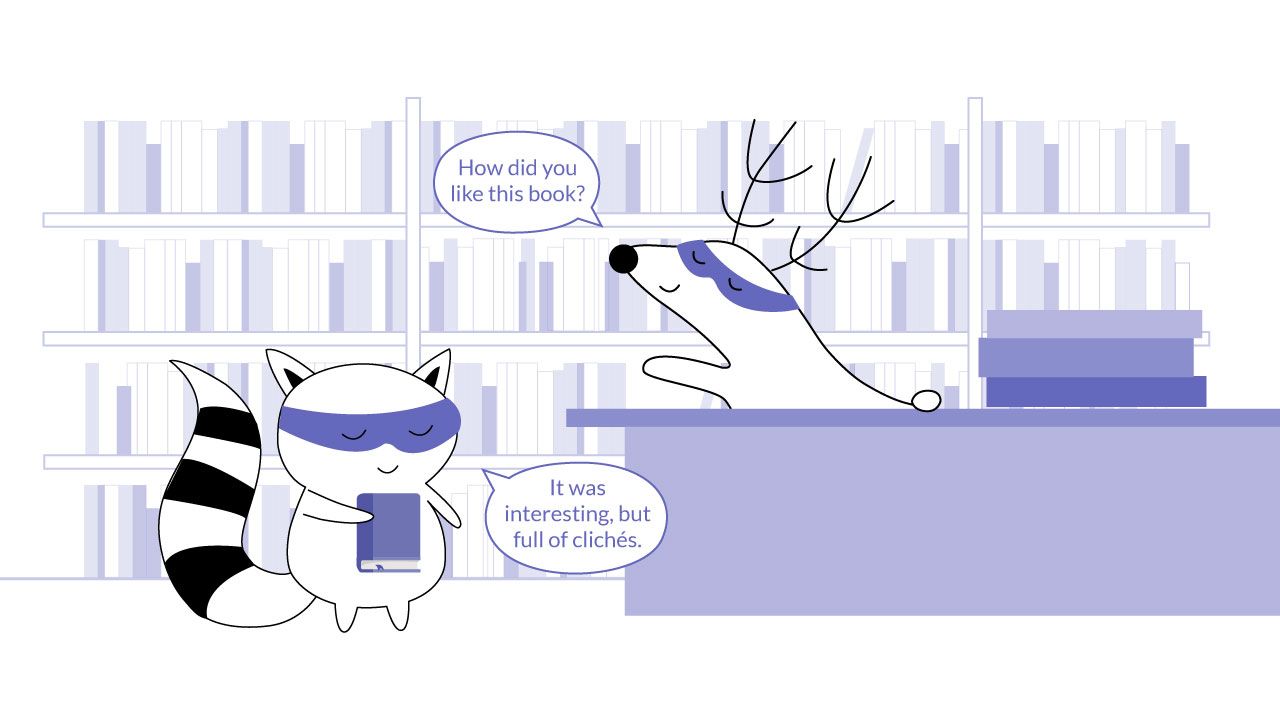
En route
En route is a French phrase that means "on the way." It comes from the French preposition en, which means "in," and the noun route, which means "road" or "route."
In English, the phrase en route is used to describe something that's happening while you're going somewhere. For example, you might say, "I got a call from my boss en route to the meeting."
Queue
Queue is a French word that means "tail." It comes from the Old French word cue, which also meant "tail."
In English, a queue is a line of people or vehicles waiting for something. For example, you might say, "There was a long queue at the grocery store this morning." However, note that this word is only used in British English – in American English, you would use the word “line.”
Cul de sac
Cul de sac is a French phrase that means "dead end." It comes from the French words cul, which means "bottom," and de sac, which means "of a bag."
English speakers use cul-de-sac to refer to a street with only one way in or out. It's often used as a residential street because it's considered a safe place for children to play.
Hors d’œuvre
Hors d’œuvre is a French phrase that means "out of the work." It comes from the French words hors, which means "out of," and œuvre, which means "work."
When English speakers are talking about hors d'œuvres, they are talking about small dishes – often finger foods – that are served before the main course. Note that in English, you can make a plural out of this word: hors d'oeuvres, but in French, it exists only in the singular form.
R.S.V.P
R.S.V.P. is one of the French phrases that came to the English language as part of etiquette and stayed. It stands for "répondez, s'il vous plaît," which means "respond, please." It's an abbreviation often used on invitations to let the host know whether or not you're coming to the event.
In English, when you receive an invitation with R.S.V.P., it's considered polite to respond – either "yes" or "no." The host usually needs to know how many people will be attending so that they can prepare accordingly.

A la carte
A la carte is a French phrase that means "according to the menu." It comes from the French words à, which means "to," and la carte, which means "the menu."
In English, when you order à la carte, you order each item on the menu separately. For example, a waiter might ask you "Would you like the a la cart or the prix-fixe menu?"
Souvenir
Souvenir is a French word that means "memory." It comes from the Latin word subveniō, which means "to come to mind."
In English, a souvenir is an object that you keep to remember a person, place, or event. For example, you might buy a snow globe as a souvenir from your trip to Paris. Nevertheless, when using this word in French, make sure to remember its original meaning.
Chic
Chic is a French word that means "stylish." Its origin is not well-known, but it might come from the Old German word Schick, which means "skill" or "talent."
The English word “chic” means someone or something that's fashionable and stylish. For example, you might say, "She always looks so chic in her designer clothes."
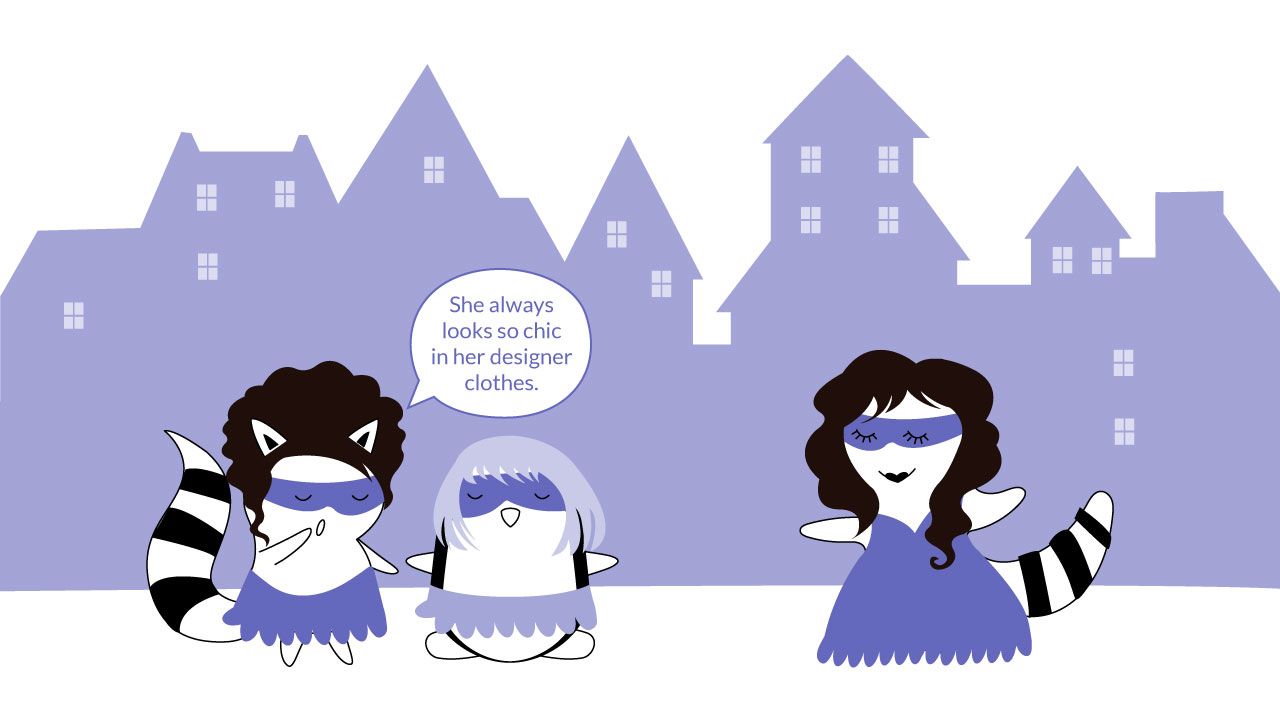
Ambulance
Ambulance is a word derived from French that can literally be translated as a “walking hospital.” It comes from the Latin word ambulō, which means "to walk."
Today, both in French and in English, an ambulance is a vehicle used to transport people who are sick or injured to the hospital.
Restaurant
Restaurant is a French word that comes from the Latin word restaurāre, which means "to restore." The literal meaning of the original Latin is "to restore with food."
In modern English and French, a restaurant is a place where you can buy and eat food.
Faux-pas
A faux pas is a French term that means "a mistake." It comes from the French words faux, which means "false," and pas, which means "step."
In English, it’s a social mistake. For example, you might say, "Making a rude comment at the dinner table was a major faux pas."
Fiancé
Fiancé is a French word that means "betrothed." It comes from the Old French word fiancer, which means "to betroth." And, if you ask as, it is one of the most beautiful words both in French and in English.
In English and French, a fiancé is a man who is engaged to be married. The female equivalent is fiancée. As you can see, the English grammar in this word also has come under strong French influence, as in English, the word endings don’t change according to the word gender.
The French Language Is Full of Surprises
It's interesting to see how many French words have also become English words. Out of the 20 words used in English that we've listed, 17 have the same meaning and origins. Additionally, all of these English words are used in both languages regularly. This just goes to show you how much influence French has had on the English language – and vice versa.
French has a long and rich history, and there are many more words and grammar similarities that you can see in English today. If you're interested in learning more, be sure to check out our website or download the Langster app.
Boost your French vocabulary, start speaking French quickly, and make sure that your language learning journey is as interesting and exciting as possible.







